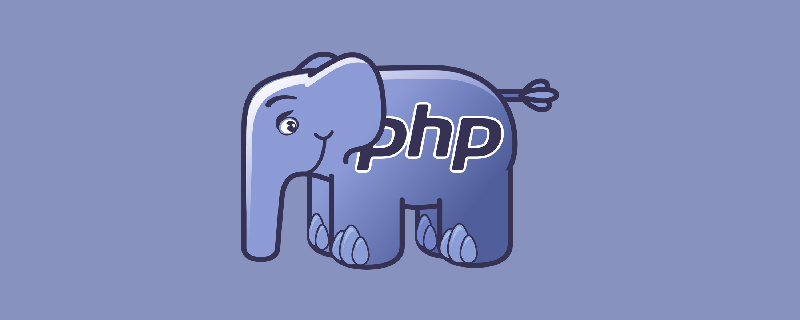Home >Backend Development >PHP Problem >What are the rules for overriding methods in php
What are the rules for overriding methods in php
- 王林Original
- 2020-11-10 15:01:013140browse
The rules for overriding methods in php are: 1. Final modified class methods cannot be overridden by subclasses; 2. If you want to override parent class methods, the number of parameters must be consistent; 3. When rewriting When , the access level can only be equal to or greater than the parent class, and the access level cannot be increased.

Method rewriting rules:
(Learning video sharing: java video tutorial)
1. Class methods modified by final cannot be overridden by subclasses
Class methods modified by final cannot be overridden by subclasses Even if the final private method cannot be inherited by subclasses, it still cannot be rewritten in alignment
class FinalMethod
{
//可继承不可重写
final public function finalPublic()
{
echo "can be inherited, but be overrided";
}
//可继承不可重写
final protected function finalProtected()
{
echo "can be inherited, but be overrided";
}
//不可继承不可重写 虽然子类继承不到父类的private方法 但同时也会被final限制无法重写
final private function finalPrivate()
{
echo "can not be inherited or be overrided";
}
//虽然不可继承 但子类里可重写此方法
private function private()
{
echo "can not be inherited ,but be overrided";
}
}
class Override extends FinalMethod
{
//error
public function finalPublic()
{
}
//error
protected function finalProtected()
{
}
//error
private function finalPrivate()
{
}
//correct
public/protected/private function private()
{
//子类继承父类重写父类方法时访问级别只能更加宽松 不可更为严格
}
}2. Whether PHP rewrites the parent class method will only be judged based on whether the method name is consistent (the number of parameters for rewriting the parent class method after 5.3 must be consistent)
This does not mean that method parameters have no effect. PHP has no overloading. The mechanism determines whether to rewrite or not only by the method name (C/C is considered to be an override only when the method names are the same and the parameters are also the same, otherwise it is overloaded, that is, the state of a polymorphic function is newly defined) When the method names are the same, it is considered to be overriding the parent class method. In 5.2, the parameters can be different. After 5.3, the parameters must be consistent with the parent class method, and all follow the rules of inherited access levels.
class Father
{
public function index($args_1)
{
}
}
class Child extends Father
{
//5.3以后重写方法必须与父类保持参数个数相同
public function index($args_1, $args_2)
{
//在C/C++中此为重载非重写,因为C/C++具有标准的多态机制,会因参数不同而视为某一方法的另一种态
//but在php中此依然为重写 但5.3以后此为非法 必须与父类的方法参数个数保持一致
}
//5.3以后重写方法必须与父类保持参数个数相同
private function index($args_1, $args_2)
{
//C/C++会因为参数不同于父类方法而视为重载,即新定义了一个函数的态,所以不会受到继承访问权限的限制
//但php仍然会被视为对父类方法的重写,会受到继承访问权限的升降规则限制
}
}3. When overriding, the access level can only be equal to or looser than that of the parent class and cannot be raised.
The public method of the parent class cannot be overridden as protected or private by the subclass, and the protected method cannot Being rewritten as private, it can be looser, not stricter
class Father
{
public function index()
{
}
}
class Child extends Father
{
protected/private function index()
{
//访问权限提升 错误
//父类为public 则子类重写也只能为public
//父类为protected 则子类可为public/protected
//父类为private 则子类public/protected/private皆可
}
}Related recommendations: php training
The above is the detailed content of What are the rules for overriding methods in php. For more information, please follow other related articles on the PHP Chinese website!

